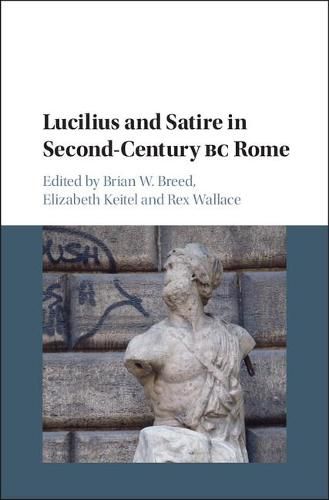Readings Newsletter
Become a Readings Member to make your shopping experience even easier.
Sign in or sign up for free!
You’re not far away from qualifying for FREE standard shipping within Australia
You’ve qualified for FREE standard shipping within Australia
The cart is loading…






This volume considers linguistic, cultural, and literary trends that fed into the creation of Roman satire in second-century BC Rome. Combining approaches drawn from linguistics, Roman history, and Latin literature, the chapters share a common purpose of attempting to assess how Lucilius’ satires functioned in the social environment in which they were created and originally read. Particular areas of focus include audiences for satire, the mixing of varieties of Latin in the satires, and relationships with other second-century genres, including comedy, epic, and oratory. Lucilius’ satires emerged at a time when Rome’s new status as an imperial power and its absorption of influences from the Greek world were shaping Roman identity. With this in mind the book provides new perspectives on the foundational identification of satire with what it means to be Roman and satire’s unique status as ‘wholly ours’ tota nostra among Latin literary genres.
$9.00 standard shipping within Australia
FREE standard shipping within Australia for orders over $100.00
Express & International shipping calculated at checkout
This volume considers linguistic, cultural, and literary trends that fed into the creation of Roman satire in second-century BC Rome. Combining approaches drawn from linguistics, Roman history, and Latin literature, the chapters share a common purpose of attempting to assess how Lucilius’ satires functioned in the social environment in which they were created and originally read. Particular areas of focus include audiences for satire, the mixing of varieties of Latin in the satires, and relationships with other second-century genres, including comedy, epic, and oratory. Lucilius’ satires emerged at a time when Rome’s new status as an imperial power and its absorption of influences from the Greek world were shaping Roman identity. With this in mind the book provides new perspectives on the foundational identification of satire with what it means to be Roman and satire’s unique status as ‘wholly ours’ tota nostra among Latin literary genres.